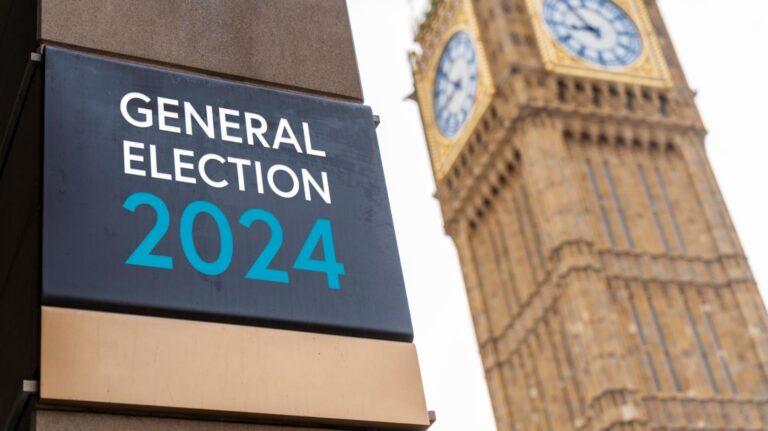With the manifestos from four of the five major UK political parties (Labour, Conservative, Green and Liberal Democrats) now published, Robotics & Automation is providing exclusive analysis of the manifestos ahead of the general election on July 4 2024.
Robotics & Automation Magazine examined four manifestos to identify key policy areas around technology, industry, technical skills, AI and automation (including automated vehicles).
Industry is a key political area based on the major parties’ focus in recent years on economic growth, with the desire to manufacture more goods in Britain, create more skilled jobs and increase young people’s practical skills often featuring in public policy debate.
Spending on research innovation and removing regulatory barriers to technology adoption are also crucial to improving people’s understanding of critical technologies, as well as driving industry forward and improving efficiency in public services and remaining a competitive global power.
All of the above are especially relevant to a post-Brexit Britain, with some parties pushing for economic and industrial self-sufficiency where possible.
Conservative:
- Securing the UK as a world leader in innovation by: increasing R&D spending to £22bn a year, up from £20bn currently; maintaining R&D tax reliefs; continuing to invest more than £1.5bn in large-scale computer clusters to establish the raw processing power to take advantage of AI; providing a £4.5bn commitment to secure strategic manufacturing sectors; and distributing £1.6bn of funding across tech catapults around the country by 2028
- Introduce a new Advanced British Standard to enhance technical learning, plus academic skills, by removing the “artificial divide” between these two areas
- Industry-backed funding for future aviation technologies
- “Doubling digital and AI expertise in the civil service, to take advantage of the latest technologies to transform public services”
- “From this September, new teachers in priority areas and key STEM and technical subjects will receive bonuses of up to £30,000 tax-free over five years”
- “Creating 100,000 more apprenticeships in England every year by the end of next Parliament”
- Securing the nation from global uncertainty: “Accelerating the modernisation of our Armed Forces and investing in technology that is advantageous on the modern battlefield”
- Finalising a free trade agreement with India, plus deeper strategic partnership on tech and defence
- Investing £3.4bn in new technology to transform the NHS: implementing a new medical technology pathway so that “cost-effective medtech, including AI, is rapidly adopted throughout the NHS; Fund tech to help clinicians read MRI and CT scans more quickly and accurately to speed up patient results
- Give police officers new powers and tools to catch criminals, including tech like facial recognition
- Net Zero: review the advantages of alternative network technologies and provide new
equipment and technology for fish processing and farming technologies - “Automated vehicles will be on British roads in the next Parliament, thanks to our new world-leading legislation”
- Raise the Skilled Worker threshold and Family income requirement with inflation automatically
- Support the agricultural sector, including clear investment in automation.
Green:
- Digital Bill of Rights to ensure independent regulation of social media providers, The Digital Bill of Rights to give the public greater control over their data and regulation of AI
- Legislate to protect workers’ rights from AI
- Nationwide transition to a range of renewable energy technologies, especially “the use of green hydrogen for necessary industrial use and energy storage technologies, seeking investment opportunities through academic-industry partnership”
- Priority to ongoing research into the best technologies and processes to address energy distribution
- Increase investment into R&D by more than £30bn in the lifetime of the five-year parliament
- Outright ban on all animal testing and ending the use of live animals in military training and support the production, promotion and transition to non-animal technologies for use in experiments
- Secure equitable access to AI and “any socially and environmentally responsible benefits” while also “addressing any bias, discrimination, equality, liberty or privacy issues arising from the use of AI”
- “Make finance and technology available to support the development of environmentally and socially sustainable economies of low-income countries“
- Investment in skills and training (including retrofitting) reaching £4bn per year, allowing workers to be prepared for the transition away from carbon-intensive industries and green energy production.
Labour:
- A new industrial strategy with a key focus on green energy
- State-owned energy company: “Great British Energy will partner with industry and trade unions to deliver clean power by co-investing in leading technologies; will help support capital-intensive projects; and will deploy local energy production to benefit communities across the country supported by £8.3bn to capitalise the project”
- Working with tech companies to prevent digital crimes
- Modernise HMRC and change the law to tackle tax avoidance, including invest in new technology
- Labour will create the conditions to support innovation and growth in the financial sector, through supportingnew technology, including Open Banking and Open Finance and ensuring a pro-innovation regulatory framework
- Labour will create a new Regulatory Innovation Office, bringing together existing functions across government. This office will help regulators update regulation, speed up approval timelines, and co-ordinate issues to improve tech adoption
- Scrapping short funding cycles for key R&D institutions in favour of ten-year budgets that allow meaningful partnerships with industry
- Work with national policing bodies and police staff to standardise approaches to IT – it states that the police need “technology and investigative techniques keeping pace with modern threats”
- To support the NHS: “harnessing the power of technologies like AI to transform the speed and accuracy of diagnostic services”; faster regulatory approval for new technology and medicines; also give coroners more powers to access information held by technology companies after a child’s death
- Seeking a new strategic partnership with India, including a free trade agreement, as well as deepening co-operation in areas like security, education, technology and climate change
- Labour will create a flexible Growth and Skills Levy, with Skills England consulting on eligible courses to ensure qualifications offer value for money
- “Labour will transform Further Education colleges into specialist Technical Excellence Colleges. These colleges will work with businesses, trade unions, and local government to provide young people with better job opportunities and the highly trained workforce that local economies need”
- Ensure the safe development and use of AI models by “introducing binding regulation on the handful of companies developing the most powerful AI models and by banning the creation of sexually explicit deepfakes”.
Liberal Democrats:
- Negotiate the UK’s participation in the Trade and Technology Council with the US
and the EU to help it play a leading role in AI regulation - Increasing the Digital Services Tax on social media firms and other tech giants
from 2% to 6% - Support science, research and innovation, particularly among small businesses and startups, in universities and in zero-carbon, environmental and medical technologies, including by: continuing to participate in Horizon Europe and joining the European Innovation Council, including aiming for at least 3% of GDP to be invested in research and development by 2030, rising to 3.5% by 2034
- Expand the British Business Bank to perform a more central role in the economy, to help ‘crowd-in’ private investment, in particular in zero-carbon products and technologies
- Set a UK-wide target for digital literacy and requiring all products to provide a short, clear version of their terms and conditions
- Develop an industrial strategy that will give businesses certainty and incentivise them to invest in new technologies
- Boost productivity and empower more people to enter the job market by making the most of
technology, including encouraging businesses to invest in training and take up digital technologies - Identifying and seeking to solve skills gaps, such as the lack of advanced technicians, by expanding higher vocational training like foundation degrees, Higher National Diplomas, Higher National Certificates and Higher Apprenticeships
- Make the UK a world leader in ethical, inclusive new technology, including AI, and a global centre for the development, manufacture and export of clean technologies
- “Tackle the productivity crisis by encouraging businesses to invest in training, take
up digital technologies” - Create a clear, workable and well-resourced cross-sectoral regulatory framework for artificial intelligence that: Promotes innovation while creating certainty for AI users, developers and
investors; establishes transparency and accountability for AI systems in the public sector; and ensures the use of personal data and AI is unbiased, transparent and accurate, and respects the privacy of innocent people - “Working together with our European neighbours to build a sustainable supply
chain for renewable energy technology“ - Harness the benefits of new technology and digital tools for patients by: Ring-fencing budgets to enable the NHS to adopt innovative digital tools; Replacing old, slow computers; Requiring all IT systems used by the NHS to work with each other; Ensuring every care setting has electronic records; [and] Expanding virtual wards and investing in new technologies that free up staff time and allow people to be treated at or closer to home”
- Develop a digital strategy to enable care users to live tech-enabled lives
- Introducing a Research and Innovation Fund to support new and emerging
technologies for farming - Putting the construction sector on a sustainable footing by investing in skills,
training and new technologies such as modern methods of construction - Ten-year plan for rail electrification, including investing in other zero-carbon
technologies - Invest instead in officers, training and technology to tackle smuggling, trafficking and modern
slavery to address challenges for immigration and asylum - Support and promote the development of international treaties on the principles and limits of the use of technology in modern warfare, while also “working more closely in the joint development of innovative defence technologies and procurement” with democratic European partners.
Robotics & Automation Magazine’s analysis
Technologies to make the NHS more efficient were a feature of the all manifestos, with the exception of the Green party.
Both the Labour and the Conservative party mentioned a free-trade agreement with India to drive cooperation on technology.
Both the Labour and the Conservative party also mentioned the role of new powers and tools, including technology, in reforming methods of policing.
All four parties mentioned an increase in R&D spending, with Labour suggesting the creation of a new regulatory office.
All four parties included a policy on making better use of AI, with all parties except the Conservatives outlining a position for ensuring the safe regulation of AI. It instead said: “The UK is well positioned to spearhead this transformation and is already leading global work on AI safety”.
The Conservatives and Liberal Democrats were the only two to mention use of farming technologies and automation to support agriculture.
The Conservative manifesto was the only manifesto to mention legislation on automated/ self-driving vehicles.









